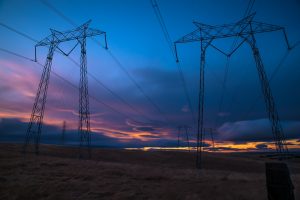 Federal regulators are currently considering a proposal that could fundamentally alter how our nation’s power markets work in tandem with state-crafted public policies.
Federal regulators are currently considering a proposal that could fundamentally alter how our nation’s power markets work in tandem with state-crafted public policies.
The change being considered, submitted by the nation’s largest grid operator, PJM, would increase electricity prices and undermine state policies in the 13 states and D.C. where PJM operates. Today, Environmental Defense Fund (EDF), alongside other clean energy advocates, filed in opposition to this proposal.
PJM’s proposal before the Federal Energy Regulatory Commission (FERC) is dense and complex (for a great primer on the universe of issues surrounding a similar proposal, see this blog post by NRDC and this article by Vox’s David Roberts). At its core, however, PJM’s proposal centers on a subject that is elemental to the electricity sector: the interplay and interaction between states and federal regulators. PJM should not thrust itself into a public policymaking role, nor should FERC become judge and jury of state policies. Instead, PJM and FERC should facilitate state policy choices. Read More














